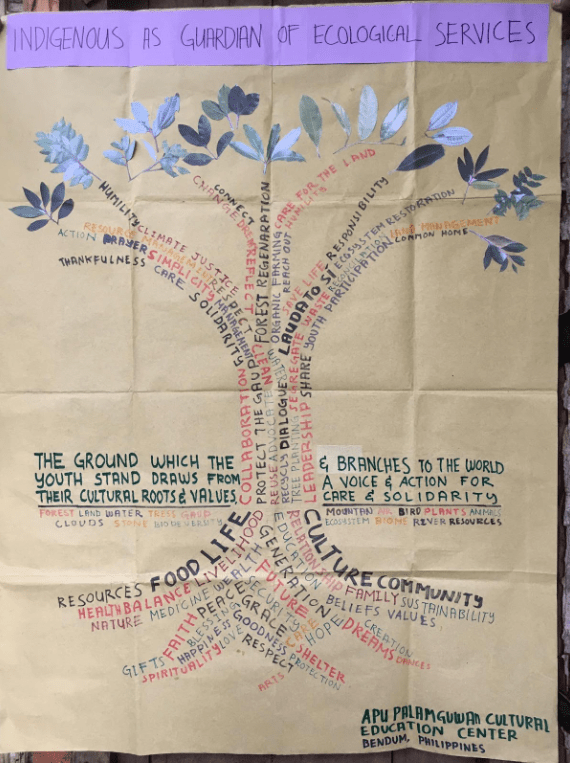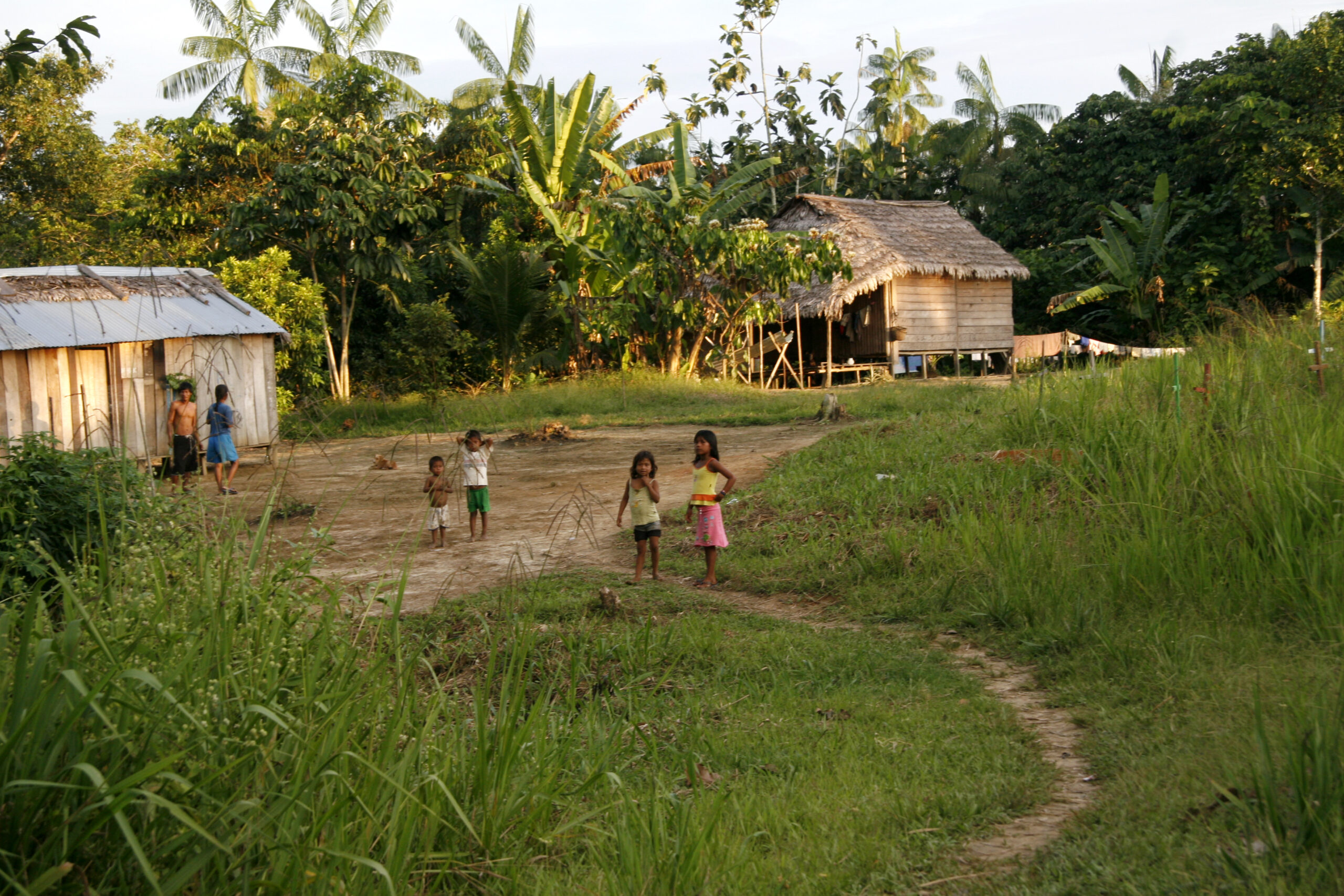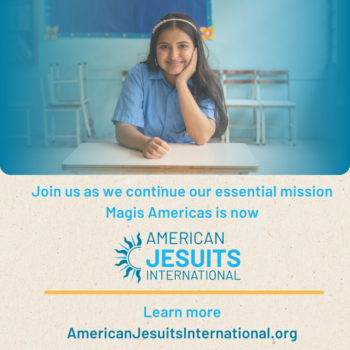The youth today face many challenges, challenges of a lifetime. The world they engage with requires a lasting commitment, where problems will not be solved by one answer or meeting.
The youth need to understand the global discussions this year, whether about COVID-19 or climate, not with anguish but with the framework of the world today, such as the fifteenth Conference of the Parties (COP15) to the Convention on Biological Diversity, the UN Food Systems Summit 2021, the 26th UN Climate Change Conference of the Parties (COP26), and the seven-year Laudato Si’ Action Platform. They need to re-assess where their food and water come from, as well as the relationships needed to build equality and keep society just and respectful. As humans, we need to understand that we are going to fail again and again, but many of us are also willing to listen, learn, and start again.
Letting the youth speak
The youth have their own ideas and a sense of enjoyment of life. Sometimes it can be hard to manage this enjoyment and learning at the same time. However, the more the youth are able to discuss their world vision in the light of curricula and competencies, the more integrated their thoughts become and the more accountable they feel. And no worries, they do all of this as they keep enjoying life.
We need an education that asks questions where there aren’t set answers. Most reactions are based on emotions, which form attitudes. The youth need to know how to reflect and to ask questions, and at the same time feel confident and assured.
The youth in Apu Palamguwan Cultural Education Center (APC) in the Philippines, is “regenerating part of the degraded forests through a Youth Work Experience program. Over the last year, 600 seedlings were nurtured of the pillar and filler species in an area that already had pioneer species. The center will continue to maintain these trees during the summer. Our experiences in guarding the forest, the land, the water, the trees, the mountains, the birds – all in the Pantaron Range – is empowered by the roots that support us. These roots are our culture, our community, and the resources we draw on for our existence, our food, and our life, along with the gratitude we feel, our dreams, and how we go forward.” (EcoJesuit)
 We need to strive for integrity. The youth have things to say, thoughts they are committed to and will stand by. So let’s let them speak! Can they still be young and have fun as they engage in these conversations? This is an internal acknowledgment rather than an external performance, it is part of a larger process. This is what “magis” is about, it is an education for attitudes that form values, not rules and controls. It is about depth, discernment, and decisions.
We need to strive for integrity. The youth have things to say, thoughts they are committed to and will stand by. So let’s let them speak! Can they still be young and have fun as they engage in these conversations? This is an internal acknowledgment rather than an external performance, it is part of a larger process. This is what “magis” is about, it is an education for attitudes that form values, not rules and controls. It is about depth, discernment, and decisions.
The ancestral domain has always been our library, and young people are capable of reading the soil and know what it needs to grow food that sustains them. They know what it is to look after and share something they have nurtured.
The Tree of Life, “these roots are our culture, our community, and the resources we draw on for our existence, our food, and our life, along with the gratitude we feel, our dreams, and how we go forward.”
Developing alternatives of care
One important thing to understand is the alternatives of the indigenous youth as they engage with mainstream society. The youth in the mainstream are creating alternatives that can give an understanding and vision of the future. Alternatives that are focused on a technological route. So, what are these alternative modalities or experiences? Tech games and social media seem to appeal to a large group and are the preoccupation of many. Yet there are other modalities. Young American poet and activist Amanda Gorman and her contribution to sharing and amplifying youth voices was reproduced all over the world and all the more stunning for many. There are many ways in which the youth employ expression of emotion and creativity.
Another important thing to do is to look at how we regenerate our lives, not just the economy. The challenge here is to retain the simplicity of the message. Fundamentally, what is needed each day? How is the simplicity of the message communicated so that people feel they can do something? For years I have picked up the wrappers on the tracks that lead to my community. Today, I can walk from the high school into the village, about a kilometer, and maybe pick up three pieces. Students have joined in, picking up wrappers for the sake of all, even if they don’t understand why plastics are a problem.
The massiveness of problems often discourages people. In Bendum and in APC, the language of a collective dream is paramount. This dream doesn’t die with one person but continues on with a community. It is a dream that goes beyond people, and faith is essential to achieve this dream. Faith is the basis of hope. If people don’t hope, people don’t dream. To go forward we must recognize that energy to create change does not come from policy and promises, it comes from a shared faith and experience.
Yes, people suffer, but we cannot limit to one narrative, people also have compassion and vision. This is what we are struggling to see as a society, and at the same time, showing this is integral for us to care for the whole earth.
“Buen vivir” (or good life): A lifetime challenge and way of life
Everyone’s reality is different. Many people have seen they are less able to contribute to change during this time of the pandemic, but others have been challenged to give more. COVID-19 has allowed us to stop, reflect, give thanks and be humble.
During this time, we are more prepared and open to listen to each other. Finding the spirit of reconciliation and trust to allow others to participate in the conversation. We are starting again, trying to find our neighbors anew, not to find new neighbors.
The Latin American expression “buen vivir” is a lovely sense of simple good living, this is what indigenous life is about. This expression needs to be found and explored with the youth today. Buen vivir gives a sense of wholeness, enoughness, and appreciation for what we have and what is alive. It enables us to build and recover trust.
The youth are our future, and as such, they have a great role to play in how we start to find solutions and alternatives to the ways in which we are interacting with our world. Let’s learn from them, give them a voice to act and enact change, creating the world they dream of.

